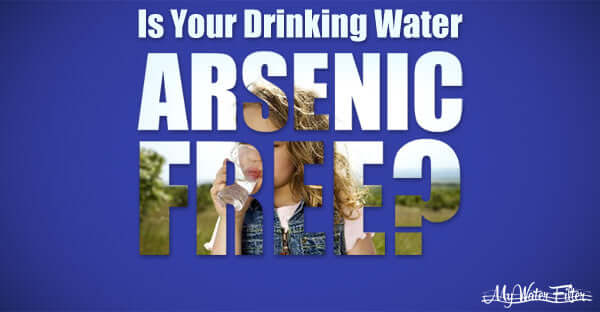
Arsenic is a substance most of us are aware of as being dangerous. Did you know that it is found in water? In 1999, after a study conducted by the National Academy of Sciences, the extensive side effects of arsenic were established...
Arsenic can cause bladder, lung, skin, kidney, and liver cancer.
It may also cause malfunctions in the central and peripheral nervous systems, the same with blood vessels and the heart. It could also be the major precursor of reproductive issues and even birth defects.
The scary thing is, it gets into our drinking water supply and comes through our taps at home!
What Is Arsenic?
Arsenic is a natural element that is widely found in the Earth's soil. There are two forms of arsenic, organic and inorganic. High levels of organic arsenic occur naturally in many types of food and is a very low risk to human health. Inorganic arsenic is found naturally in soil or rock and this type can pose a serious risk to health - Department of Health WA
How Does Arsenic Get Into Our Water Supply?
Drinking water can be contaminated with inorganic arsenic by either,
- Wind-blown dust
- Leaching or runoff from soil, rocks, and sediment
Especially in areas where industrial activity and mining is taking place. Groundwater sources such as bores are also usually at greater risk of contamination than surface and rainwater supplies. 
Cleaning Up Contaminated Water
Governments set standards and regulations that protect public health by ensuring controlled levels of contaminants in the drinking water. Luckily in Australia, our drinking water supplies are continually monitored by the Department of Health. However, it does not mean you are safe from ever being exposed to arsenic. You should be aware of your environment and activities impacting your community. If you are near an industrial zone, building zone or mining activity you should be vigilant about your drinking water. Homeowners are encouraged to use certified water filters to remove any levels of arsenic in water, whether its deemed a safe level or not. Water Filters may not guarantee 100% removal but it's safer to use than not using them at all. It is also important that the filter be checked, maintained, and replaced based on the recommendation of the manufacturer. Everyone is at risk from arsenic contaminating our drinking water. And we all have the right to know about the dangers regarding this contamination so we can take the necessary steps to protect ourselves. 








